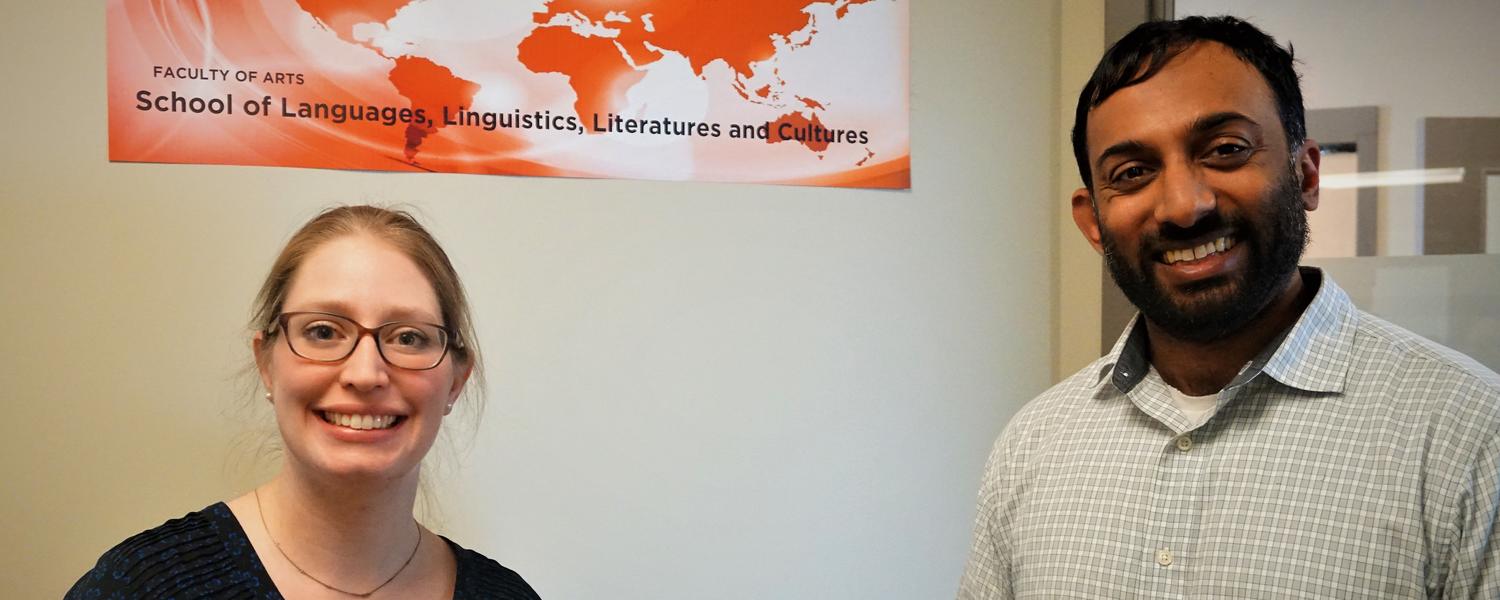Types of financial support
The Departmental funding package comprises of these sources.

Before starting your graduate program, make sure you understand your tuition and general fees, and learn about funding available.
For more details and the most accurate information about graduate tuition and fees, go to the Academic Calendar.
Departmental Funding is offered to Graduate students on a competitive bases. You must apply for the departmental funding by February 1st to be considered and we recommend you also seek external funding opportunities throughout the program.
If you are completing your MA thesis-based, you will receive at least $20,000 annually for twenty months of the program and if you are completing your PhD you will receive at least $22,000 annually for four years in the program.
The Departmental funding package comprises of these sources.
We provide cholarships and research awards such as the FGSS (Faculty of Graduate Studies Scholarships) and EPE (Enrollment Planning Envelope) Award for Language Learning Enhancement to students on the basis of academic merit.
You are required to apply for:
Faculty members will share their experience, give knowledge, offer guidance and contribute towards the students professional development as well as prepare you for an academic career.
You may also have the opportunity to gain teaching experience with beginner and/or intermediate level language courses through sessional teaching assignments under article 23.4 of the TUCFA Collective Agreement between the Governors of the University of Calgary and the University of Calgary Faculty Association.
Graduate students in a teaching role are subject to class observation, direction or evaluation by the course coordinator. The Graduate Program Director, the Director or a delegate may also observe and report on the teaching of a graduate student.
The Linguistics Graduate Program aims to provide sufficient funding to cover tuition plus basic living expenses for all full-time graduate students. Wherever there is a conflict between this policy ad the FGS Graduate Student Funding Operating Standard, the latter shall prevail.
The Minimum Stipend for students who are enrolled full-time in the PhD program is $22,000 annually for four years and $24,000 for international students. Students who are externally sponsored (i.e., admitted with documented financial support from an external agency meeting the minimum amount) are not normally funded from university sources, and are exempted from the Minimum Doctoral Stipend.
The Minimum Stipend for students who are enrolled full-time in the MA program is $20,000 annually for the first two years of enrolment. Students who are externally sponsored (i.e., admitted with documented financial support from an external agency meeting the minimum amount) are not normally funded from
university sources, and are exempted from the Minimum Stipend for Master’s
students.
Funding and its continuation are contingent on maintaining satisfactory progress in the program and meeting the supervisor's reasonable expectations.
Employment income as a teaching assistant (GAT), non-teaching assistant (GANT) or research assistant (GAR) is included in the guaranteed funding amount offered to students. Students must be available and eligible to take this employment as a GAT, GANT, or GAR; otherwise, the amount of the GAT, GANT, or GAR refused will be deducted from the annual funding offered to the student for that academic year.
All of the following count toward meeting the student’s guaranteed funding amount (i.e. the amount guaranteed in the student’s offer of admission):
Income from the following sources is not counted toward the student’s guaranteed funding amount:
Students are required to apply for external scholarships for which they are eligible.
Success in external and internal scholarship competitions will affect the student’s funding in the following way: any student who receives a major award ($15,000 or more) and who has not exceeded the normal funding period (2 years for MAs and 4 years for PhDs) will be guaranteed funding greater than the floor (specified in paragraphs 2 and 3 above).
If resources are available, the Program will provide funding towards reimbursement of any international fee differential remaining after Faculty contributions for students paying their own international fees, with priority for MA students.
If a student receives an award after the first funding letter in a given academic year has been issued, the Program may redistribute funding, but in no case will the student's total funding be reduced.
If a graduate student has not completed the thesis in the normal funding period (2 years for MAs, 4 years for PhDs), AND if the Program has funds available after meeting all commitments to graduate students in the normal funding period, that student may be awarded funding. This funding will be subject to the following condition: the student must submit to the Graduate Committee a written plan for completing the thesis developed in collaboration with the supervisory committee (supervisor for MA students) and deemed to be feasible by the supervisor.
Students are responsible for paying tuition and fees annually. View current fee schedule
Students with funding from university sources can apply for a payment plan. More information on payment plans